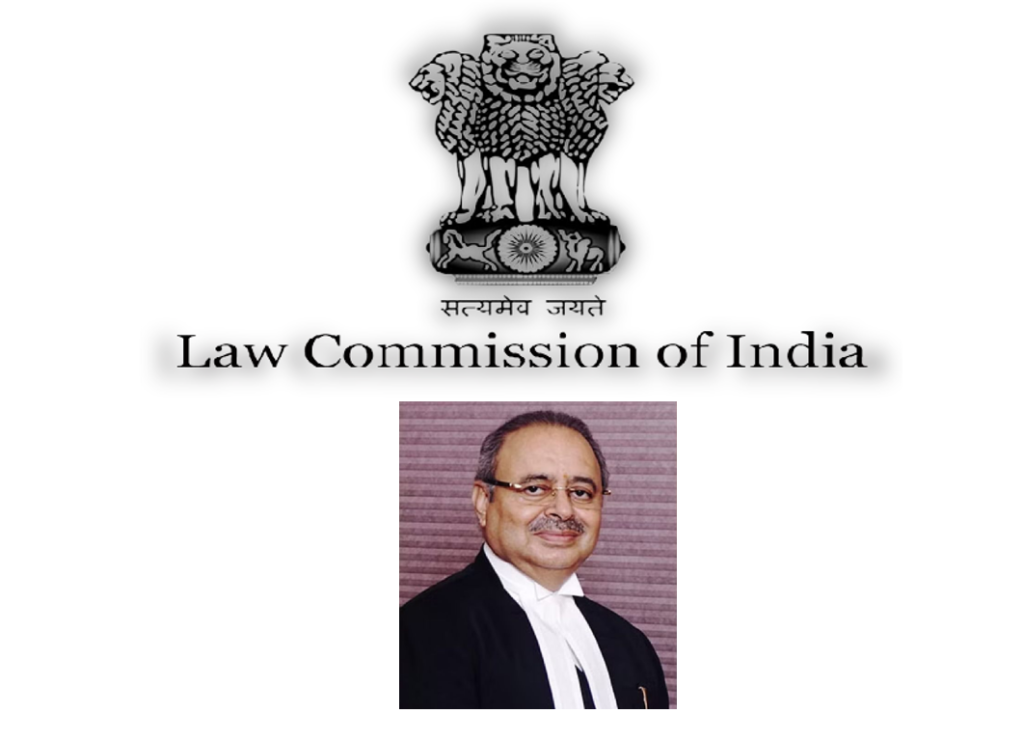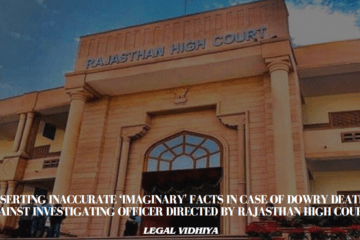
The Law Commission of India, headed by retired Justice Ritu Raj Awasthi, recently recommended a minor amendment to the Code of Civil Procedure to expedite the resolution of cases stuck at the cross-examination stage in civil courts across the country. The proposed amendment seeks to remove an anomaly that has been causing delays in the cross-examination process by replacing the term “plaintiff’s witness” with “defendant’s witness” in Rule 14(4) of Order VII of the Code of Civil Procedure, 1908.
The report submitted by the Law Commission, titled “Urgent need to Amend Rule 14 (4) of Order VII of the Code of Civil Procedure, 1908,” noted that many cases scheduled for cross-examination or for the production of new documents could not proceed due to objections raised by either party because of the current anomaly in the Code. The report highlights that a plaintiff cannot put questions that might be put in cross-examination to their own witnesses, except as provided in Section 154 of the Evidence Act. This is made clear by sub-rule (3) of Rule 1 of Order XIII, which employs the expression “cross-examination of the witness of the other party.”
The Law Commission’s recommendation aims to bring clarity and coherence to the Code of Civil Procedure to ensure that the cross-examination process runs smoothly and efficiently. The proposed amendment would allow the parties involved in a civil dispute to proceed with cross-examination and production of new documents as stipulated in the Act, without any further delays or objections caused by the current anomaly.
The Law Commission’s report highlighted that despite the Supreme Court’s 2005 judgment pointing out the anomaly and recommending changes to the law, it has remained unchanged so far. Justice Awasthi, in a letter addressed to the Minister of Law and Justice, Kiren Rijiju, noted that the direction issued by the Supreme Court holds the field in the absence of any corrective measures undertaken by Parliament.
The proposed amendment to the Code of Civil Procedure would have a significant impact on the legal system in India, particularly in the expeditious resolution of cases in civil courts. Cross-examination is a crucial part of any legal process, and any delay in the process can prolong the duration of the case and cause inconvenience and hardship to the parties involved. By removing the current anomaly in the Code, the proposed amendment would streamline the cross-examination process and ensure that cases proceed smoothly and efficiently, without any undue delay.
The Law Commission’s recommendation is a positive step towards improving the efficiency and effectiveness of the Indian legal system. The proposed amendment to the Code of Civil Procedure is a minor change, but it has the potential to bring significant benefits in terms of expediting the resolution of cases stuck at the cross-examination stage. The proposed amendment would also help reduce the backlog of cases in civil courts and enable the justice system to function more effectively and efficiently.
In conclusion, the Law Commission of India’s recommendation to amend the Code of Civil Procedure is a significant development in the country’s legal system. The proposed amendment would address an anomaly that has been causing delays in the cross-examination process and would have a positive impact on the resolution of cases in civil courts across the country. The government should take note of the Law Commission’s recommendation and implement the proposed amendment to ensure that the legal system functions effectively and efficiently.
by– Ankit Singh, 4th year B.A.LL.B, CAIL Bengaluru




1 Comment
Shruti · April 10, 2023 at 11:05 am
This is completely a wrong analysis. This error had nothing to do with speedy disposal.